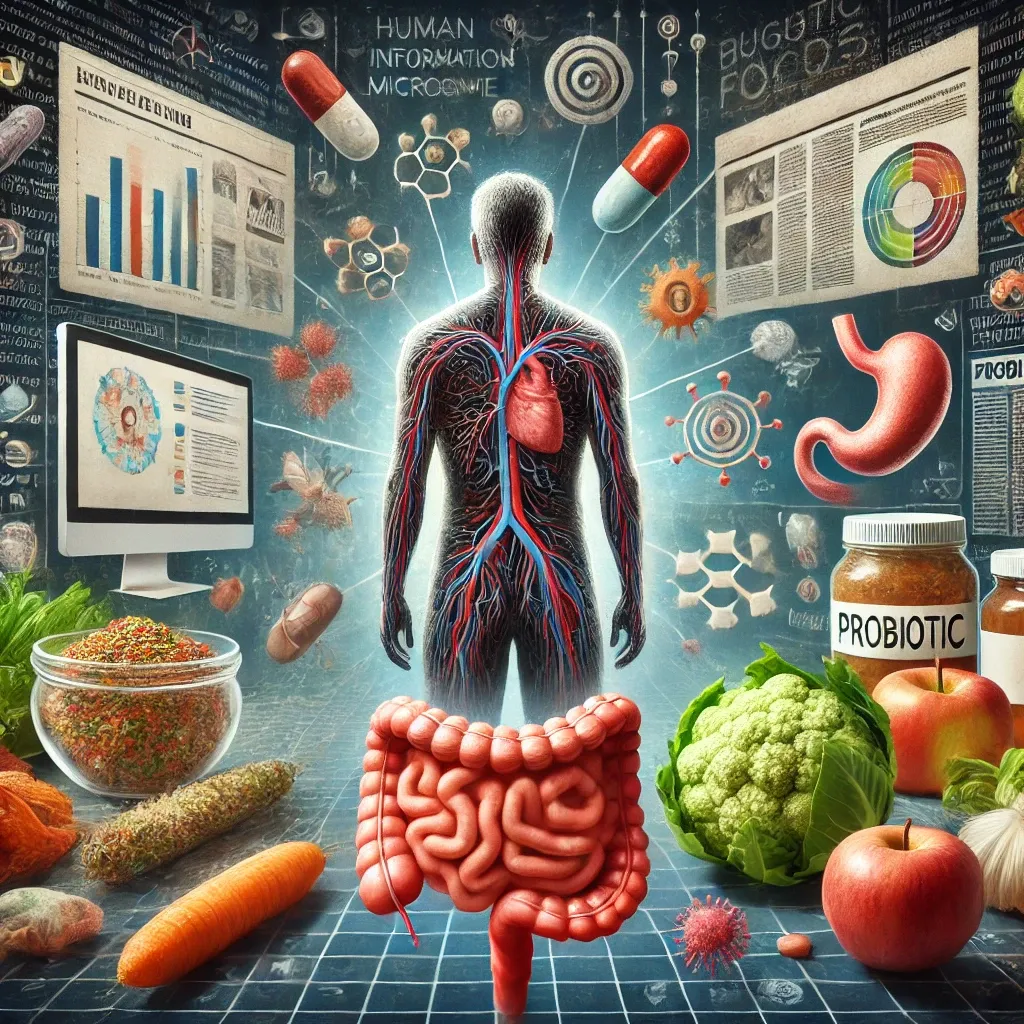
In these times of accelerating anxiety and constant information bombardment, a hidden crisis is quietly wreaking havoc on our bodies: the degradation of the human microbiome. As digestive issues like SIBO (Small Intestinal Bacterial Overgrowth), IBS, Colitis, and Crohn's disease become increasingly common, their links to chronic stress, inflammation, and even autoimmune conditions come into sharper focus. The external world, full of economic uncertainty, inflation, and geopolitical instability, mirrors the internal environment of millions who suffer from gut dysbiosis. In both realms, there is imbalance, chaos, and a desperate need for renewal.
The stressors of modern life elevate adrenaline, which, in turn, disturbs the delicate balance of our microbiome. It is no coincidence that as our existential anxiety rises, so too do the rates of digestive disorders. The digestive system is deeply intertwined with our nervous system, our immune system, and our emotional well-being. A disordered gut can ripple out into every facet of life. And yet, amid this chaos, the seeds of renewal can be sown.
To restore the microbiome is to rebuild the very foundation of health. It is a process requiring mindful attention and deliberate choices—rooted in the food we eat, the environments we inhabit, and the connections we nurture.
The Invisible Enemies of the Gut: Sugar, Grain, and Processed Foods
Our modern diet is riddled with substances that disturb the microbiome’s delicate ecosystem. Sugar, grain (especially wheat), and alcohol, while staples in the typical Western diet, feed harmful bacteria, leading to inflammation and dysbiosis. But it's not just these obvious offenders. Pesticides, preservatives, and synthetic chemicals found in processed foods further impair our body's ability to digest, absorb nutrients, regulate blood sugar, and detoxify. These substances don’t just affect the gut; they compromise brain chemistry, hormonal balance, and immune function. A steady diet of these inflammatory agents gradually deteriorates the gut lining, leading to conditions like leaky gut, where toxins and undigested food particles enter the bloodstream, overwhelming the immune system.
A Diet of Renewal: Reducing Inflammation, Feeding Life
To renew the microbiome is to nurture an ecosystem—one that requires diversity, nourishment, and care. The building blocks for this renewal lie in a diet that reduces inflammation and fosters a diverse bacterial community.
1. Reduce Sugar, Grains, and Alcohol: These are the chief offenders when it comes to fostering bad bacteria and yeast overgrowth. Replacing them with nutrient-dense, unprocessed foods like root vegetables, yams, and rice can reduce inflammation and support gut health. The goal isn’t deprivation but recalibration—feeding the body what it needs to thrive.
2. Nutrient-Dense Foods for Gut Flora: Quality meats and cruciferous vegetables like broccoli, cauliflower, and cabbage provide essential nutrients while supporting the gut's bacterial ecosystem. These foods also aid the body’s detoxification processes and protect the lymphatic system.
3. Raw Fermented Foods: Fermented foods such as sauerkraut, kimchi, and kefir introduce a diverse array of beneficial bacteria into the gut. These bacteria not only break down nutrients for easier absorption but also detoxify harmful chemicals, bolster the immune system, and maintain healthy gut-brain communication. A well-functioning gut flora means a well-functioning mind and immune system.
4. Probiotics with Diverse Strains: While fermented foods are a natural source of probiotics, supplementing with high-quality probiotics that contain diverse bacterial strains can further enhance the microbiome's resilience. A broad-spectrum probiotic ensures that various species of beneficial bacteria are present to fulfill the myriad functions required for optimal gut health.
5. Prebiotics: Fueling the Good Bacteria: Probiotics alone are not enough—they require nourishment in the form of prebiotics. Foods like onions, garlic, and artichokes are excellent prebiotics. But perhaps the most powerful prebiotic sources are found in functional mushrooms.
To gain more insights read the second part of this series: The Power of Functional Mushrooms by Reid Parr.
Purana Health LinkedIn
Tags: #gut health #navigating stressors #diet of renewal #microbiome # purana health #reid parr
